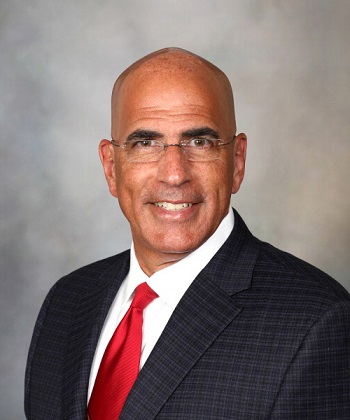
Joseph A. Dearani, MD
STS News, Fall 2020 —Fall has arrived, which means the Program Planning Committee and the STS staff are concentrating on developing the upcoming STS Annual Meeting.
This year hasn’t been typical, though, so the planning has been different than anything we’ve ever experienced.
We had hoped that the COVID pandemic would have subsided and a vaccine would have been available to the masses. That hasn’t happened yet, so we made the difficult decision to change STS 2021 into a virtual meeting, rather than an in-person meeting in Austin, Texas.
At first, I was disappointed that I wouldn’t have the opportunity to see many of my friends and colleagues and other STS members. But as we explored the options for a virtual meeting and I saw what was possible, I thought “that’s incredible!”
I realized that we could put together a meeting that would welcome more cardiothoracic surgeons and their team members than ever before AND that we still could offer high-quality science, interactive presentations, networking and mentoring opportunities, and a chance to interact with our colleagues in industry and learn about new medical devices and technologies—we just had to embrace every side of innovation.
And that’s what we are doing. We are taking advantage of the latest virtual platform innovations to create an immersive experience that will allow attendees to engage, learn new things, be inspired, and have an amazing experience. See our cover story for more details.
Behind the scenes, we also are embracing device, product, and process innovations from industry representatives and expanding our educational programs to include an online robotics curriculum, a transformed Learning Center, a new cardiothoracic surgery e-book, and a new podcast series that will help us—and the world—get to know the people behind the surgical mask better. This new series, “Same Surgeon, Different Light,” is part of our growing efforts to embrace diversity, equity, and inclusion, and help build a strong cardiothoracic surgical specialty that reflects the patient population it serves.
You can learn about the new podcast series and many of the other new initiatives throughout this publication.
Fighting for You and Our Future
The COVID pandemic has put a strain on all of us. We have served on the front lines during the height of the crisis. We have worked extraordinarily long hours, been exposed to physical and emotional trauma, and thrust into very difficult circumstances.
The cessation of elective surgery by state governments, salary reductions to help compensate for hospital and health care institutional losses, and illnesses as a result of COVID-19 have devastated many practices. Now, as we work to rebuild our practices and prepare for a potential surge in new COVID cases this fall and winter, we face the additional burden of an impending 9% Medicare reimbursement cut beginning on January 1.
I want to assure you that STS is doing everything it can to fight these proposed cuts, and we thank everyone who has made the effort to contest these reimbursement reductions. Please continue battling with us; our voices are stronger together. More information on how you can get involved is available on page 19.
Managing Stress
Few career paths require relentless tests of resolve and commitment as the path to becoming a cardiothoracic surgeon. That’s why – especially now –we all need to take the time and conduct regular self-assessment checks and maintain a good balance between our personal and professional lives.
One way that I help manage my own stress is through music. I played piano during grade school and began playing the saxophone in college. Every morning before work, I play my saxophone for an hour in a soundproof room—“the 4:30 room”—in my home.
I love rhythm and blues and classical standards, and I also have a passion for jazz. Playing music helps put me in the right frame of mind to handle the obstacles that I may find later in the day.
Many parallels exist between the bandstand and the operating room—team members are able to exercise leading or supporting roles, as well as develop communication and listening skills. In addition, studies have shown that music not only helps a surgeon perform better in the OR, but also can calm a patient’s nerves before an operation.
Music is an important part of my life for a number of reasons, and whether you are a musician or just an avid listener, I hope that music is an important part of your life as well.
So as we adapt and evolve because of the COVID pandemic, let’s remember that although we face many new challenges, I am confident that we will prevail—as a specialty and as a community of health care workers around the world that always will face challenges with purpose and passion.
Each day I count my blessings and reflect on the silver linings from this pandemic. And as I see how the Society is adapting and changing with the times, I’m getting jazzed about sharing that experience with you through content, collaboration, and community during the STS 2021 meeting. Although I won’t be wearing my cowboy boots or enjoying barbeque with you in Austin, I look forward to the new year, the growth of our Society, and the evolution of our specialty.
Be well and be safe.